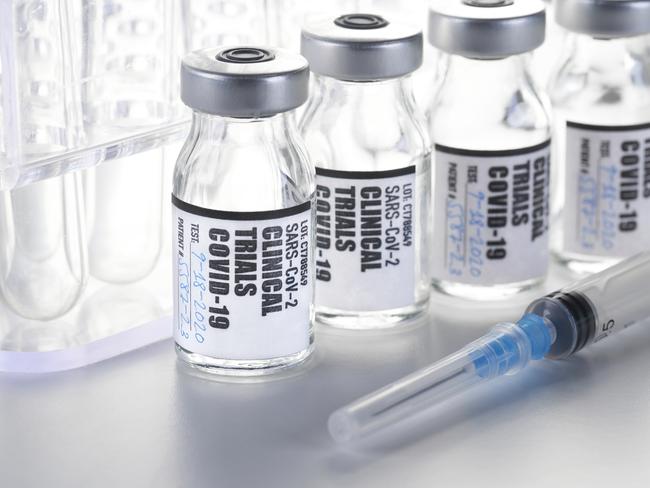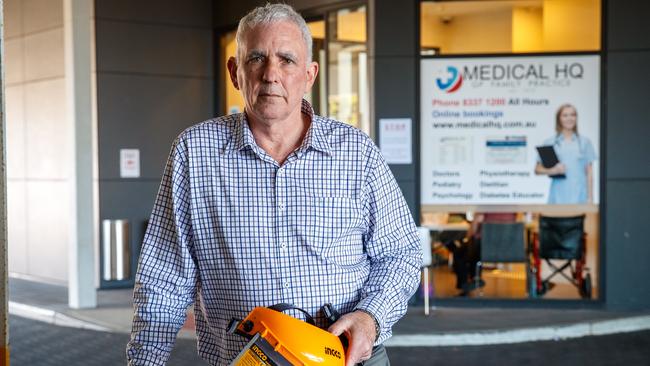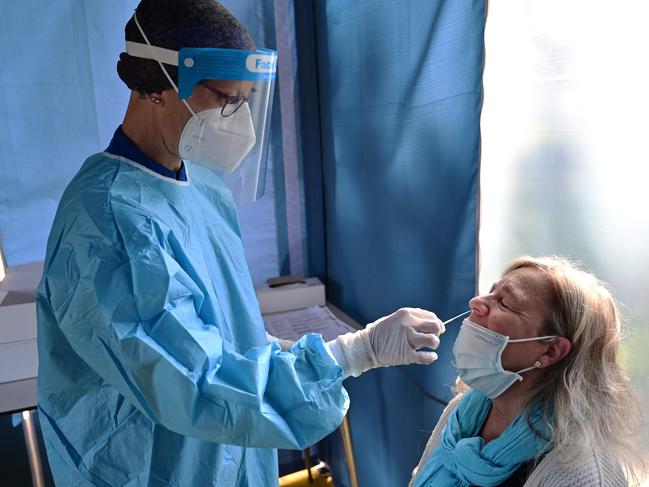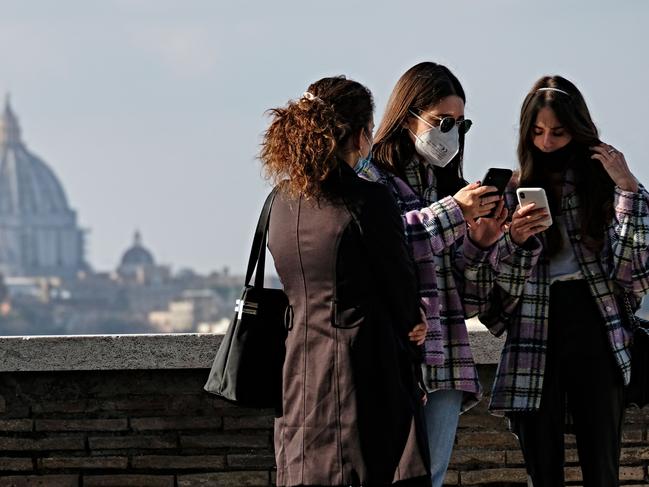Aussies who will miss out on the COVID-19 vaccine
Some people may be unable to receive the Pfizer COVID-19 vaccine because clinical testing has not proven it is safe for them. Here’s who will be affected.
Health
Don't miss out on the headlines from Health. Followed categories will be added to My News.
The elderly, pregnant women and children under 12 will miss out on the first doses of the Pfizer COVID-19 vaccine until the Therapeutic Goods Administration is convinced it is safe for them.
Some high risk groups such as people with diabetes, immunosuppression and other serious health conditions may also have to wait until research into the vaccines’s potential side effects – if any – are known.
Eleven months after the pandemic began the government is still working out who will get the vaccines and how they will be delivered.
National Cabinet is due to meet this Friday to discuss Australia’s vaccine strategy and work out who in the community will be among the first to receive the promising vaccine.
The Therapeutic Goods Administration (TGA) said it has given provisional determination for the first two vaccines made by Oxford/AstraZeneca vaccine and Pfizer.
Before the vaccines can be given to the elderly clinical trials will have to show they work in this population group.
While Oxford University successfully trialled their vaccine on the elderly, Pfizer only recently began trials in those aged up to 85.
A company spokeswoman said early findings released this week showing a 90 per cent success rate included data from elderly participants.
Pfizer has not conducted trials on pregnant women or those under 12.
Earlier this week, Health Minister Greg Hunt told News Corp Australia that subject to National Cabinet’s approval frontline health and aged care workers and the elderly would be the first to receive the vaccine.

Essential workers such as teachers and police are likely to be next but the Government’s Australian Technical Advisory Group on Immunisation is still drawing up the list of who falls within this group.
It is not yet known whether it will include teachers, childcare workers, retail workers, police or hospitality staff.
While vaccine production began in Australia this week, the Immunisation Coalition’s CEO Kim Sampson and chair Dr Rod Pearce have raised concerns that details on who get it are still being drawn up.
“If we look back you know we could say, well, shouldn’t this have been thought about years ago,” Mr Sampson said.
The Head of the TGA John Skerrit said the problem was the regulator didn’t know what populations the vaccines are suitable for yet because clinical trials are still underway.
While the AstraZeneca vaccine has been successfully trialled on the elderly, trials for the Pfizer vaccine on that age cohort are continuing.
Experts have questioned whether the elderly should be among the first in line for the vaccine.
“There is a point of view that says we should actually be vaccinating 20 to 40 year olds, maybe before we do the elderly, because someone with long term COVID-19 at 20 has got more long term risk than someone older who might only have life expectancy of five or so years,” Dr Pearce told News Corp.
Mr Sampson said if the elderly did not respond well to the vaccine they might be better protected if those around them like aged care workers and relatives who visited them had to be vaccinated.
National Seniors spokesman Ian Henschke said science should guide the decision but “aged care workers and the elderly would be the ones that would be most at risk, and therefore the vaccine should be given to those that are most at risk”.
Medecins Sans Frontiers demanded all governments publish details of the commercial agreements they reach with pharmaceutical companies supplying covid vaccines.
It said details had emerged showing AstraZeneca’s “no profit” commitment to supply its vaccine had limits.
“The company has given itself the power to declare the pandemic over as soon as July 2021. This means that, after July 2021, AstraZeneca could charge governments and other purchasers high prices for a vaccine that was entirely funded by the public,” the organisation said.

Mr Hunt said if clinical trials were successful vaccinations would begin to be rolled out from March and the entire population could be vaccinated by the end of 2021.
The vaccines will be delivered in large vials containing multiple doses, so GPs will have to arrange for mass clinics to ensure 15 people at a time can be given the shots and no vaccine is wasted.
The Pfizer vaccine, which this week reported a 90 per cent success rate, has to be stored at minus 70 degrees celsius and will be delivered in specialised thermal shippers filled with dry ice where it can survive for 15 days.

EU SEES VACCINATIONS WITHIN MONTHS, RUSSIA LAUDS VACCINE
Meanwhile, the European Union expressed hope on Wednesday (local time) that it could start vaccinating people against the novel coronavirus as early as next year, as Italy recorded more than one million cases and Britain said its death toll has surpassed the 50,000 mark.
The head of the European Centre for Disease Prevention and Control (ECDC), Andrea Ammon, told reporters that a vaccination program could be kicked off “optimistically (in the) first quarter next year, but I can’t be more precise,” as trials in both the US and Russia suggested that vaccines currently in the final stages of testing were so far proving very effective.
A vaccine is seen as the best chance to break the cycle of deadly virus surges and severe restrictions across much of the world since COVID-19 first emerged in China late last year and ballooned into a pandemic.

So the announcement by US pharma giant Pfizer on Monday that a vaccine it is developing with Germany’s BioNTech is 90 per cent effective has sparked a wave of optimism across the globe that the pandemic might soon be brought under control.
And the news Wednesday that Russia’s own Sputnik V vaccine was 92 per cent effective fuelled another rally on the world’s stock markets.
According to the World Health Organisation, some 42 “candidate vaccines” are currently undergoing clinical trial, up from 11 in mid-June.
In August, Russia became the first country to register a vaccine, but did so ahead of the large-scale clinical trials that are still under way.

For Sputnik V, some 40,000 volunteers at 29 medical centres are taking part in the third and final phase of testing and overseas trials are also taking place in the United Arab Emirates, Venezuela, Belarus and other countries.
Russia promised that the interim research data are to be published in one of the world’s “leading peer-reviewed medical academic journals”.
But even when a vaccine is finally launched, it will not necessarily mark the end of the pandemic, many observers warn.
MORE NEWS
Why Aussies are missing out on cancer drugs
Hidden $250 health fund tax slug
Paralysed Aussies could walk again
Originally published as Aussies who will miss out on the COVID-19 vaccine

